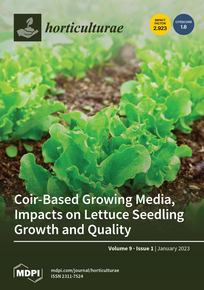 Enhancement of Antioxidant Potential, Phytochemicals, Nutritional Properties, and Growth of Siphonochilus aethiopicus (Schweinf.) B.L.Burtt with Different Dosages of Compost Tea February 2023 Link Here Humans have been using plants as medicine since the dawn of time. For example, cave-people were eating chamomile and yarrow, two bitter tasting plants, leading anthropologists to conclude they were using these plants for their medicinal value. In another instance a neanderthal was found to have poplar bark residue on his teeth, near what was likely a very painful dental abscess. Poplar bark contains salicylic acid, the active ingredient in Aspirin. These plant medicines are found in abundance around the world. That is not the case for all of these substances however. This research studies an increasingly endangered plant, African Wild Ginger. Natal Ginger, as it's also called, is known to have a number of human-health benefits. This has led to over-harvesting in the regions it is native to. In order to maintain wild populations, this plant must be cultivated commercially so that nature is left with some for herself. Siphonochilus aethiopicus is the scientific name of this purple-petaled flowering plant that is known to treat colds, coughs, flu, inflammation, asthma, headaches, pain, and nausea (research has shown potential anti-cancer properties as well). Researchers wanted to know if applying compost tea to the plant would help it grow, and/or improve the medicinal qualities. To do this they made compost tea using spent mushroom compost, aerobically in tap water, brewed for 24 hours. This tea was applied only once, at several different concentrations, to ginger starts that had been growing in rhizome friendly potting soil. The plants were allowed to grow for 20 weeks in a controlled greenhouse in Cape Town, South Africa. After the 20 weeks of growth, growth and medicinal quality was documented and compared between treatment groups. For growth, aspects like rhizome (root) diameter, leaf length, plant height, rhizome weight, and chlorophyll content were measured. Medicinal quality was indicated through flavanol and polyphenol content, Antioxidant capacity, ferric reducing capacity, and oxygen radical absorbance capacity. Not surprisingly (if you have been keeping tabs on teas), the ginger grown with compost tea outperformed the ginger that was grown with just water. The researchers conclude that any application of compost tea can "optimize mineral accumulation, phytochemicals, and antioxidants". The growth parameters were not significantly affected, so the plants did not grow drastically bigger, but did produce better medicine. The highest medicinal qualities were fond in the non-diluted compost tea. And because compost tea is a low cost, earth-friendly "bio-fertilizer", the researchers indicate that using compost tea is a part of a sustainable path forward for African Wild Ginger cultivation. We humans may be technologically advanced in a lot of ways, but our physiology is not far from that of our neanderthal ancestors. The plants that helped them stay fit and healthy will do the same for us. Thanks to the researchers from Cape Peninsula University for showing us that compost tea is good for the plants that are good for us.
0 Comments
Your comment will be posted after it is approved.
Leave a Reply. |
Archives
June 2024
Categories
All
|
Contact Us
Why TeaLAB?TeaLAB is committed to helping people and their gardens to become more self- sufficient, healthier, and productive. Grow your sweetest corn, your biggest watermelon, your tallest quinoa, your tastiest tomato, and your happiest you.
TeaLAB was founded to teach people how to garden organically, so that we can become more closely connected with the land. Our goal has been to simplify growing methods so that gardeners have a positive experience in the garden. TeaLAB is where the garden meets the laboratory. From around the world and into your backyard, our products contain ingredients that are sourced both locally and globally. Using methods both ancient and cutting edge, TeaLAB promotes maximum biology. Grow with TeaLAB. |

 RSS Feed
RSS Feed
